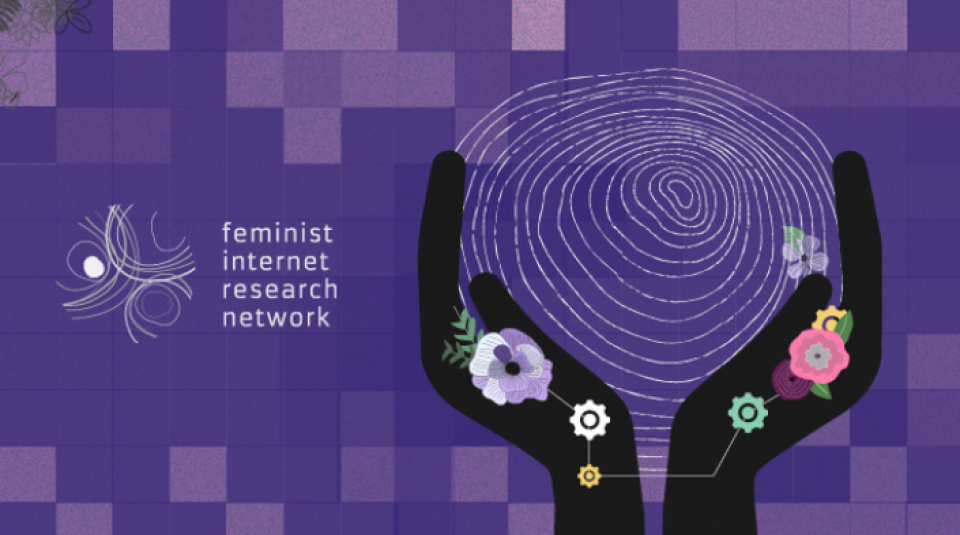
Originally published on apc.org here.
At APC, the Women's Rights Programme recently launched a new Feminist Internet Research Network (FIRN) cycle. FIRN is a collaborative and multidisciplinary research project led by APC, funded by the International Development Research Centre (IDRC) and APC. The project focuses on the making of a feminist internet, seeing this as critical to bringing about transformation in gendered structures of power that exist online and offline and to capture fully the fluidity of these spaces and our experiences with them. Members of the network undertake data-driven research that provides substantial evidence to drive change in policy and law, and in the discourse around internet rights.
This is the third iteration of FIRN since its launch in 2018. Partnering with 10 new researchers from the global South, the network will be engaging with 18-month research projects that focus on technology-facilitated gender-based violence (TFGBV). Overall, the project focuses on the making of a feminist internet as critical to bringing about transformation in gendered structures of power that exist online and on the ground. Members of the network will undertake a feminist internet research that provides substantial evidence to drive change in policy and law and in the discourse around internet rights. The broader objective is to ensure that the needs of women, and gender diverse and queer people are considered in internet policy discussions and decision-making.
FIRN is known for its feminist take on internet research and knowledge-making around technology. Since its launch, it continues to produce an impressive record of research output by creating opportunities to publish findings in diverse platforms on a wide range of topics. The main objective of the network is to influence internet research, policy advocacy, and support more researchers across the global South. Over the years, FIRN has done research on the issues of TFGBV, artificial intelligence (AI), access, and the gig economy. In this new FIRN cycle, we will specifically focus on feminist research on TFGBV across the global South. That said, even though TFGBV is at the centre, since intersectional analysis has been built as a structure into each research project, issues of AI, unequal digital access, and that of the gig economy might also be explored in the projects.
Based on the research exploration with partners from Africa (Ethiopia, Kenya, Uganda, Senegal, South Africa, Sudan, the Democratic Republic of Congo, Rwanda and Uganda), Asia (Malaysia and India), Eastern Europe (Bulgaria), LAC (Brazil, Argentina and Chile), MENA (Turkey), the network points out to the huge knowledge gap that continues to exist in relation to TFGBV. This reinforced our priority to explore TFGBV through new lenses, from a diversity of locations here at FIRN. These research projects have commonly identified:
- The lack of an in-depth analysis on TFGBV apropos of the intersections of gender, sexuality, ethnicity, race, class and other social locations.
- The definition of TFGBV predominantly focuses on restrictive discourses that are heteronormative, blind to structural violences, and perceive women as victims without any agency. And they effectively ignore the LGBTQIA+ community.
- Interventions around TFGBV continue to be ineffective because of the un/intentional separation and binary divide of online and offline spaces.
- Lack of context-based responsive regulations, actions, and recommendations that ensure that victims of TFGBV to have meaningful access to justice and remedies.
In this new cycle, FIRN envisions contributing to and disrupting the formation of knowledge in relation to TFGBV. Together with the 10 research partners, FIRN will continue to work on a feminist research centring geopolitical, context-based analysis, building a research network within the global South, and providing space and opportunity to researchers located in the global South. The project will also continue to question and reflect on what we think we know and how we come to know it through the facilitation of a feminist learning circle with its partners, and learn new ways of doing feminist research and data analysis.
The inception meeting for the 18-month FIRN project was held online on 19 and 22 March, 2024. The convening was designed and facilitated with a deliberate attempt to centre the new in-coming partners and their research projects. The objective behind this structure is three-fold:
- To build cross-partner collaboration, solidarities, and learning.
- To take a deeper view of technology-facilitated violence with more focus on contexts, identities, experiences, and larger systems at play.
- To understand and learn the need for unpacking our ethical practices, our methods, and our positionality in light of building feminist research.
Forty participants attended on average attended the two-day meeting. All 10 project proposals were presented; and the partners received comments and feedback from researchers and peer-advisors in the room. Following this announcement, together with the documentation team, we will publish a report on the details of the inception meeting.
It is with so much excitement that we announce the following 10 new research partners that FIRN will be working with:
| Region | Countries | Title | Organisation |
| MENA | Egypt | Sexual health and rights implications of TFGBV toward women and LGBTQIA+ people in Egypt | Ganoubia Hora |
| MENA | Palestine | Colonial feminism as OGBV: Justifying Israel’s genocide in Palestine | Kohl Journal |
| Africa | Ethiopia | Resisting homophobia in Ethiopia | Ethiopian. Queer. Ally. Feminist |
| Africa | South Africa | Black women and technology-facilitated gender based violence: A decolonial feminist exploration | The University of Cape Town |
| Africa | South Africa | Exploring technology-facilitated gender-based violence in online dating experiences among South African youths | Independent Institute of Education (IIEMSA Campus) |
| LAC | Uruguay | Uruguayan sex workers' image rights online | O.TRA.S. |
| LAC | Brazil | TFGBV/OGBV, its impacts on the experiences of Black Brazilian women and their stories of resistance and joy | Instituto Minas Programam |
| LAC | Brazil, Ecuador, Bolivia, Mexico | Feminist digital forensics: A study and a proposal for development | MariaLab |
| Asia | India | Role of intersectionality in shaping experiences of online gender-based violence (OGBV) in transgender, non-binary and gender diverse (TNBGD) persons in India | Sangath |
| Asia | Tajikistan | Transforming understanding into action | Women's Center "Gulrukhsor" |
In this cycle of FIRN, the advisory committee will comprise:
- Ghiwa Sayegh, a queer feminist writer, publisher, and archivist from Lebanon. She is the founding editor of Kohl: A Journal for Body and Gender Research, and the co-founder of Intersectional Knowledge Publishers.
- Horacio F. Sívori, an anthropologist, assistant professor at the Institute of Social Medicine, State University of Rio de Janeiro, where he chairs the Latin American Center on Sexuality and Human Rights.
- Natasha Chhabra, a mixed-methods researcher and consultant. She has over a decade of experience in policy, research, advocacy, and monitoring and evaluation. Currently, she is a Ph.D. candidate in the Department of Sociology at the University of Maryland, College Park. She is also an independent consultant providing support to a global survey on TFGBV, being conducted by The Centre for International Governance Innovation and a researcher at one of the largest national unions for federal workers in Canada.
- Neema Iyer, an artist and a technologist. She is the founder of Pollicy, an award-winning feminist civic technology collective based in Kampala, Uganda, is the co-host of the Terms and Conditions podcast, a senior fellow on Trustworthy AI with the Mozilla Foundation, and is on Facebook/Meta’s Global Women’s Safety Advisory Board.
- Srinidhi Raghavan, a disabled feminist, researcher, educator and writer. She is also a co-lead, programmes, at a feminist-disability rights organisation, Rising Flame. She works at the intersections of sexuality, gender, disability and technology. She supported the coordination of FIRN’s research undertaken between 2022 and 2023.
- 189 views







Add new comment